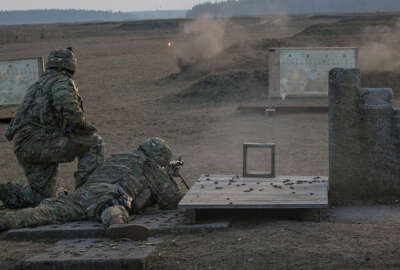
How will Army Futures Command work for small business?
One senator is worried Futures Command could harm small business.
What does the Army’s biggest acquisition reorganization in 40 years mean for small business?
That’s what one senator is trying to find out.
Sen. Ben Cardin (D-Md.) is concerned about the effects the Army’s forthcoming Futures Command will have on smaller businesses trying to work with the service.
“It is estimated that 80 percent of funding for research and development programs will be reprogrammed. The defunding and subsequent cancellation of these projects will likely have negative impacts on small businesses nationwide,” Cardin stated in a May 7 letter.
Cardin is asking the Government Accountability Office to address five questions on the status of small business and Futures Command in the letter.
Specifically, Cardin wants to know if the Army performed any studies to determine the impact of Futures Command on small business or the defense industrial base.
Cardin is also asking if the Army conducted any risk assessments on how reshaping multiple organizations will impact the force.
The Army is currently undergoing a complete transformation to reframe itself to deter near-peer competitors like China and Russia. Futures Command is a big part of those plans and want to pick a city to host the command by June 30.
Officials say they want soldiers to be involved in the acquisition process from beginning to end, the theory being that previous efforts have asked for feedback from end users far too late in the acquisition process, prompting changes that are difficult and expensive to make once a system has progressed too far into its development lifecycle.
“With a few exceptions, what we have is essentially a linear process — going from an idea, writing up a big requirements document and then vetting it through multiple steps — it takes years, and it’s just not going to be effective going into the future,” Gen. Mark Milley, the Army’s chief of staff, told reporters. “So we’re going to re-engineer the corporation.”
The command and the Army as a whole are focusing on six lines of effort to modernize including future vertical life, networks and long-range precision weapons.
Army Secretary Mark Esper said long-range precision weapons are the top priority right now.
Earlier this year, Milley said he wanted guns that can shoot much farther than they can now.
“Our Army here today and our military emphasizes, accentuates and uses precision fires to a great extent. We in the Army have a major part in that. We already have relatively good long range fires. But I’m not talking about the ranges that currently exist today. I’m talking about a 10 times capability for ground forces to really reach out and touch not with missiles, but with bullets,” Milley said.
Copyright © 2025 Federal News Network. All rights reserved. This website is not intended for users located within the European Economic Area.
Scott Maucione is a defense reporter for Federal News Network and reports on human capital, workforce and the Defense Department at-large.
Follow @smaucioneWFED
Related Stories





